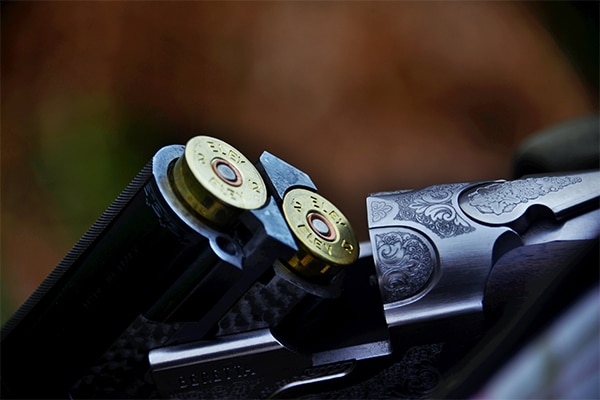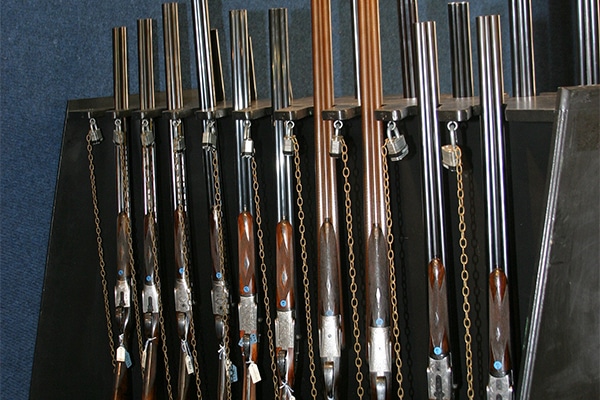
Firearms licensing
Whether you require information on firearms law or advice regarding a certificate application, we have all the information you need.
Get information on the legal shooting season for mammals and birds in the UK.
Learn about our current conservation projects and how you can get involved.
Comprehensive information and advice from our specialist firearms team.
Everything you need to know about shotgun, rifle and airgun ammunition.
Find our up-to-date information, advice and links to government resources.
Everything you need to know on firearms law and licensing.
All the latest news and advice on general licences and how they affect you.


This page covers Scottish knife and offensive weapon laws. It complements our page titled “Carrying knives”, which can be found here.
Scottish law has always regarded an attack with an offensive weapon as a serious aggravation of the common law crime of assault. Successive legislation has also introduced tighter and more specific controls to tackle the carrying and sale of knives and target the prevention of crime.
A wide range of powers are now in force and there are an array of penalties available to the court, including fines and imprisonment. These powers and penalties are set out in a number of pieces of legislation, as set out below.
In conjunction with the Act mentioned above, The Sale and Hire of Crossbows, Knives and Certain Other Articles to Children and Young Persons (Scotland) Order 2011 prescribes that proof of age cards within the PASS scheme are also acceptable for the purposes of identification at point of sale or hire.
The PASS scheme is the UK’s national guarantee for proof of age cards and has the backing of the Home Office, the Association of Chief Police Officers (ACPO), the Security Industry Authority (SIA) and the Trading Standards Institute (TSI). The scheme delivers a common standard through its easily recognised hologram logo, which is backed by a robust audit and accreditation process to help protect retailers of age restricted goods, and their employees, against the many false identity cards that are widely available.
For specific information about the Scottish Knife Dealers’ Licensing Scheme and about carrying, using and selling knives, see here.
Got a question? Email us on firearms@basc.org.uk or call 01244 573 010.
© BASC July 2023

Whether you require information on firearms law or advice regarding a certificate application, we have all the information you need.

As the holder of a firearm or shotgun certificate, you are required to comply with certain conditions on your certificate relating to security.

Information on age restrictions for the possession of firearms, shotguns and airguns by under-18-year-olds, including those guns as a gift.
Sign up to our weekly newsletter and get all the latest updates straight to your inbox.
© 2023 British Association for Shooting and Conservation. Registered Office: Marford Mill, Rossett, Wrexham, LL12 0HL – Registered Society No: 28488R. BASC is a trading name of the British Association for Shooting and Conservation Limited which is authorised and regulated by the Financial Conduct Authority (FCA) under firm reference number 311937.
If you have any questions or complaints about your BASC membership insurance cover, please email us. More information about resolving complaints can be found on the FCA website or on the EU ODR platform.
This website uses cookies so that we can provide you with the best user experience possible. Cookie information is stored in your browser and performs functions such as recognising you when you return to our website and helping our team to understand which sections of the website you find most interesting and useful.
Strictly Necessary Cookie should be enabled at all times so that we can save your preferences for cookie settings.
If you disable this cookie, we will not be able to save your preferences. This means that every time you visit this website you will need to enable or disable cookies again.
This website uses Google Analytics to collect anonymous information such as the number of visitors to the site, and the most popular pages.
Keeping this cookie enabled helps us to improve our website.
Please enable Strictly Necessary Cookies first so that we can save your preferences!
More information about our Cookie Policy